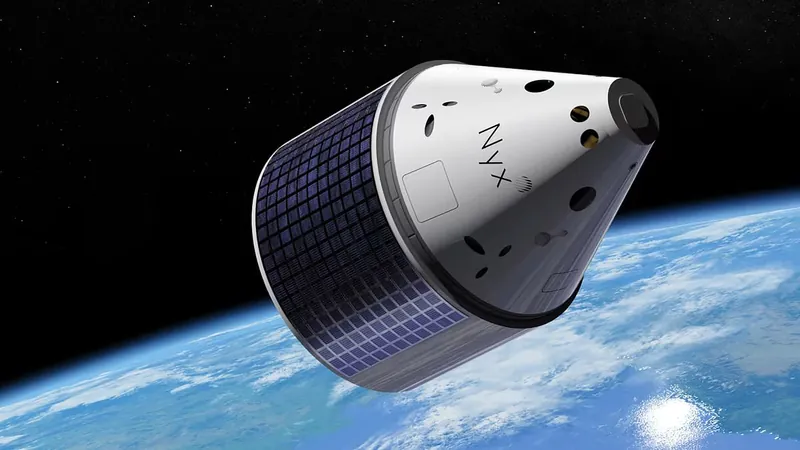
Game Developers Frustrated by Bosses' Push for AI Amidst Industry Turmoil
2025-01-21
Author: Lok
Introduction
The video game industry is reeling from a wave of challenges, including studio closures and job insecurity, while companies seem more focused on investing in artificial intelligence than addressing the evolving needs of their workforce. A recent survey conducted by the Game Developers Conference (GDC) reveals that a staggering 52 percent of developers work at studios implementing generative AI in their projects, yet concerns over the technology's implications are rising sharply.
Survey Findings
The “State of the Game Industry” report, part of a series of annual surveys by GDC organizers, highlights that nearly half of the 3,000 developers surveyed feel apprehensive about AI's influence on the industry. The findings, released on Tuesday, indicate a significant shift in sentiment: only 13 percent of respondents now believe AI has a positive effect on games, a notable decline from 21 percent the previous year. The upcoming GDC conference is set to take place in San Francisco in March 2025, but these troubling trends loom large over the industry.
Impact of Layoffs
Despite the success of titles like Astro Bot and Helldivers 2, the landscape is marred by substantial layoffs at major companies such as Microsoft and Sony. Developers find themselves grappling with the ethical dilemmas of AI implementation at a time when job stability is a growing concern. One developer expressed regret for contributing to AI advancements, stating, "I have a PhD in AI and developed algorithms used in generative AI; I regret how naively I offered up my contributions."
Skepticism Towards AI
Alarmingly, 30 percent of respondents reported negative feelings toward AI, a significant increase from last year. While generative AI has the potential to assist with tasks like coding and 3D modeling, when asked about practical applications in their work, many developers simply wrote "none," highlighting their skepticism about its utility.
Increasing Workloads
Rather than easing workloads, many developers are working longer hours than ever. The survey revealed that 13 percent are clocking over 51 hours a week, up from 8 percent last year. This dramatic increase suggests that the burden of lost colleagues due to layoffs is significant, compounded by the unfulfilled promise of AI as a productivity tool. One developer succinctly stated, "We should use generative AI to help people be faster at their jobs, not lose them."
Ongoing Layoffs and Job Market Struggles
Despite an industry mantra of “Survive till ‘25,” the ongoing layoffs paint a grim picture. Reports indicate that one in ten developers has lost their jobs in the past year. Those who have been laid off often struggle to find new opportunities, with one individual disclosing their experience of submitting 500 job applications without success. Another developer shared, "I have been laid off three times in the last year, and the last role I had only lasted four months."
Working Conditions and Industry Challenges
Even for those who manage to secure new positions, employment conditions vary widely. Some developers find themselves in better roles, while others face reduced pay and worse working conditions. The sentiment among many is that the industry is plagued by poor leadership, unrealistic expectations, and a relentless drive for profits, leading to a toxic cycle of over-expansion and subsequent layoffs.
Conclusion
In summary, while the gaming industry is seeing innovations in AI, the consequences of mismanagement, job loss, and escalating workloads are overshadowing these developments. Developers are calling for a reevaluation of priorities—urging management to adopt leaner processes and focus on sustainable success rather than the unattainable "moon shot" ambitions that have led to widespread disillusionment in the industry.




 Brasil (PT)
Brasil (PT)
 Canada (EN)
Canada (EN)
 Chile (ES)
Chile (ES)
 Česko (CS)
Česko (CS)
 대한민국 (KO)
대한민국 (KO)
 España (ES)
España (ES)
 France (FR)
France (FR)
 Hong Kong (EN)
Hong Kong (EN)
 Italia (IT)
Italia (IT)
 日本 (JA)
日本 (JA)
 Magyarország (HU)
Magyarország (HU)
 Norge (NO)
Norge (NO)
 Polska (PL)
Polska (PL)
 Schweiz (DE)
Schweiz (DE)
 Singapore (EN)
Singapore (EN)
 Sverige (SV)
Sverige (SV)
 Suomi (FI)
Suomi (FI)
 Türkiye (TR)
Türkiye (TR)
 الإمارات العربية المتحدة (AR)
الإمارات العربية المتحدة (AR)